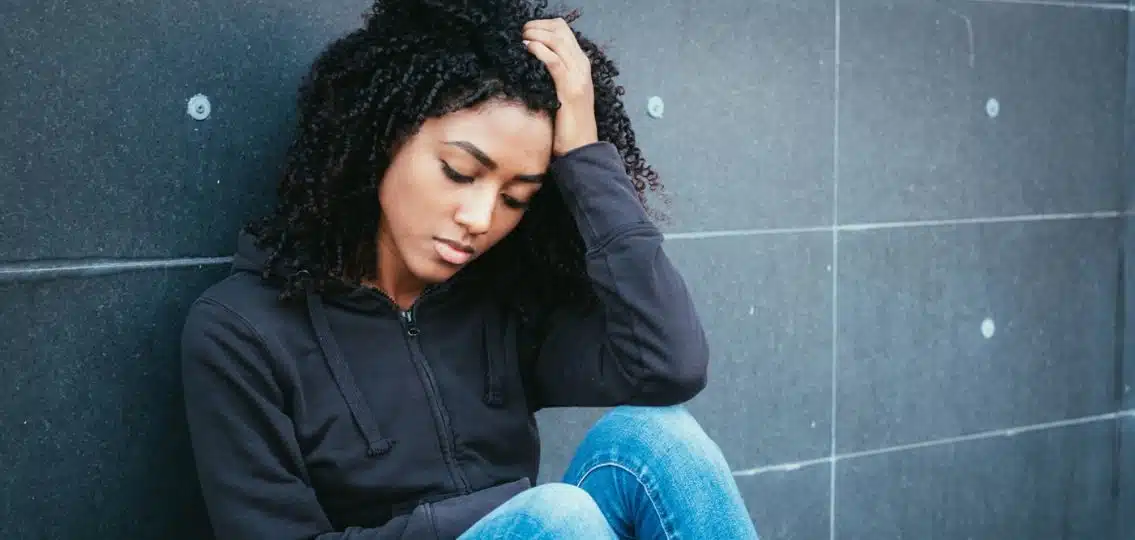Almost every parent has been there at one point or another: your kid is in with a crowd; they know where they’re sitting for lunch every day; they have someone to hang out with on the weekend. In other words, they have their people. And then, one day, they show up at a sporting event or the lunchroom and realize the friendship circle closed and they’re left on the outside.
A friendship breakup is one of the most painful things teens go through, and it can be absolutely heartbreaking for parents to watch. The last thing parents want to do is just stand by and watch their kids suffer.
So, how can you help support your child through this heartache? First, realize that your teen’s experience, while incredibly painful, is completely common, according to adolescent psychologist Cameron Caswell.
“I have clients on the entire spectrum of popularity — from the prom queen to the ones who are so socially anxious they don’t want to talk to anyone. Every single one of them has issues with their friends, whether they feel excluded or worry they aren’t liked for who they are and need to be someone different for their friends.”
No matter how widespread ending friendships is, it’s not something we want our kids to endure. Caswell finds that parents typically approach these situations in one of two ways. The first is by trying to minimize it, saying things like, “You’re only in middle school; it’s no big deal; it will get better,” or even “They don’t deserve you.” Or, a parent may have an over-the-top reaction and take the opposite approach, for instance, by calling the former friend’s parents.
While it’s valid to want to take action, Caswell cautions against it. “Getting involved is only going to make the situation worse and damage the trust your child has in you, especially if they ask you not to interfere and you do it anyway.”
If you cry in front of your teen, maybe because you’re reliving your own past experience, your teen might not understand why you’re sad. They may interpret your tears in a number of ways:
- They have disappointed you with this friendship breakup.
- There is something wrong with them that caused the friendship breakup.
- This friendship breakup is a very big deal.
All of which can make them feel even worse and cause them to hesitate sharing the next time something like this happens.
“Your child doesn’t need to carry your emotional baggage. We’re trying to help them carry their own,” Caswell says.
Instead of under- or over-reacting, Caswell recommends approaching the situation from a neutral zone. Try invoking this mantra:
Right now, my child feels left out. It has probably happened before, and it will probably happen more times in the future. This is just one of those times.
A neutral approach like this helps contain your child’s hurt to one specific situation, with a reminder that this pain won’t be forever. It shows your teen that though it feels like a big deal now, it’s really not a big deal in the grand scheme of things.
How can you assume a neutral approach when your child is hurting?
- Be calm.
- Be curious.
- Be collaborative.
- Be consoling.
Caswell says, “The best advice is to come at these situations from a calm and curious place; to tell them you’ll help them figure it out together; that whatever happens, it’s going to be okay; that you are supporting them; and that they will get through it.”
The goal here is to determine what your teen needs right now to feel okay.
Supporting Teens Through a Friendship Breakup
6 tips to help your teen feel better when they lose a friend.
- Calmly validate their feelings.
- Ask your teen how they want you to support them.
- Help them plan for fearful situations that may arise.
- Encourage them to think through what happened.
- Empower them to make the sort of friends they want.
- Remind them that most friendships aren’t meant to last forever.
Validate your teen’s emotional experience.
The truth is, we can’t fix the situation or make our kids feel better about losing a friend. So instead, just calmly validate that losing friends hurts. “They’re going to read confidence in your calm demeanor, which will help them realize losing a friend is not the end of the world,” Caswell explains.
Ask your teen what kind of support they want and need.
Rather than offering an immediate solution, simply let your teen know you’re there to support them, then ask them what kind of support they want and need. “They may be surprised you’re even asking them, because we don’t tend to ask our teens what they need; instead, we tell them,” Caswell says. “Often they may just need to vent.”
Approach fearful situations with problem solving.
Get to the bottom of their fears by helping them plan for situations that will arise. Ask them, “Where will you sit tomorrow?” for example. If they are unsure how to approach a situation, help them brainstorm. You can make suggestions, but it’s better not to give them an answer because you want them to learn how to figure out the answer or learn to trust themselves.
Help your teen think through what happened.
Sometimes these situations stem from a simple miscommunication. Other times, they might stem from something more involved. Help your teen puzzle through why they think a friend dropped them, or worse, why they assume everyone hates them. Here again, it’s best to take the middle road. Try not to side with the other person, nor demonize them. It’s quite possible they might become friends again.
Empower your teen to become the star of their story.
A situation like this offers a chance to rethink whether it was actually a good friendship or not, and whether these are friends they want to keep. If your teen is trying to change themself to fit in, how can they find kids who have more in common? “The key to helping teens feel empowered is to reframe the situation as one where they show up how they want to, and everyone else is responding to them rather than the other way around,” Caswell says.
Remind your teen that losing friends is not a failure, it’s an indication that it’s time to move on.
Often we assume that friendships need to last our entire lifetime, and while some do, most do not. Help your teen realize they had a friend for a certain amount of time, and then the dynamic changed. Sometimes, it’s just not the right fit for them anymore.
Bottom line: Calmly help your teen understand that sometimes friendships end. And, when the hurt is over, that everyone will be okay.




